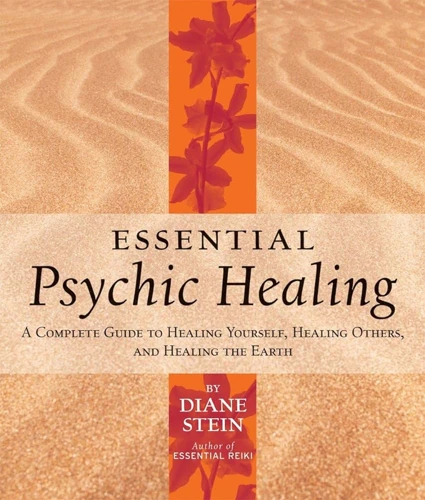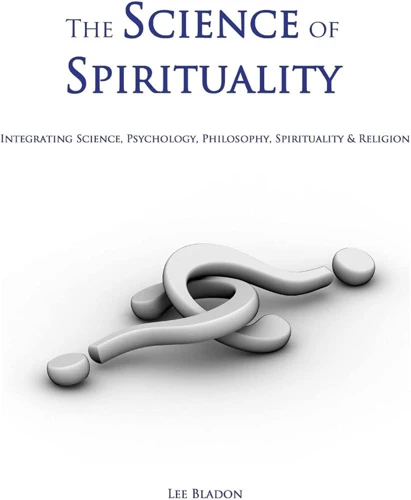Have you ever wondered about the role of spirituality in emotional healing? Many people find solace and guidance in their spiritual beliefs when navigating through challenging times. Spirituality offers a unique perspective and a deeper understanding of life’s complexities. It can provide comfort, strength, and a sense of purpose during moments of emotional turmoil. In this article, we will explore the significance of emotional healing and delve into the ways spirituality can play a vital role in this process. By embracing spirituality, individuals can tap into a profound source of healing and find the guidance they need to navigate their emotional journey.
Contents
- The Importance of Emotional Healing
- The Role of Spirituality in Emotional Healing
- Ways to Incorporate Spirituality in Emotional Healing
- The Science Behind Spirituality and Emotional Healing
- Real-Life Stories of Spiritual Healing
- Incorporating Spirituality in Your Healing Journey
- Conclusion
-
Frequently Asked Questions
- 1. Can emotional healing help improve my physical health?
- 2. How long does the emotional healing process take?
- 3. Can I embark on an emotional healing journey without a spiritual belief?
- 4. Does emotional healing mean forgetting or suppressing painful memories?
- 5. Can I practice emotional healing on my own, or do I need professional help?
- 6. Can spirituality be integrated into therapy sessions?
- 7. How does emotional healing impact relationships?
- 8. Can emotional healing help with managing stress?
- 9. Is emotional healing a one-time process?
- 10. Can spiritual practices alone heal emotional wounds?
- References
The Importance of Emotional Healing

Emotional healing is a crucial aspect of our overall well-being, as it allows us to navigate through challenging experiences and restore balance in our lives. When we face emotional wounds, such as trauma, grief, or prolonged stress, they can have a profound impact on our mental, physical, and spiritual health. Without addressing these wounds, they can fester and manifest in various ways, including anxiety, depression, or even physical ailments. Emotional healing is about acknowledging and processing these wounds, allowing ourselves to feel and heal from within. It empowers us to release negative emotions, develop healthy coping mechanisms, and cultivate resilience. By prioritizing our emotional well-being, we can enhance our relationships, improve our overall quality of life, and create a solid foundation for personal growth. It is important to remember that emotional healing is a unique and individual journey, and there is no one-size-fits-all approach.
The Role of Spirituality in Emotional Healing

Spirituality plays a significant role in emotional healing, offering a unique perspective and deeper understanding of our experiences. Connecting with a Higher Power allows individuals to find solace and guidance, providing a sense of support and comfort during difficult times. This connection can provide a source of strength and resilience, instilling a belief that one is not alone in their struggles. Spirituality helps individuals in finding meaning and purpose in their lives, which can be especially powerful in the face of emotional pain. By exploring their personal beliefs and values, individuals can derive a sense of direction and motivation to overcome emotional challenges. Self-compassion is another vital aspect of emotional healing, and spirituality can be instrumental in cultivating self-compassion. It encourages individuals to practice forgiveness, acceptance, and love towards themselves, allowing for healing and growth. Finally, spirituality emphasizes the importance of practicing mindfulness and presence, enabling individuals to be fully present in the moment and cultivate awareness of their emotions. This mindfulness can aid in healing emotional wounds by allowing individuals to process and release negative emotions constructively. Spiritual practices such as meditation, prayer, and reflection can all contribute to emotional healing by fostering inner peace, clarity, and a sense of renewal. If you want to learn more about specific spiritual practices for emotional healing, you can explore the use of spiritual practices for emotional healing.
1. Connecting with a Higher Power
Connecting with a higher power is a fundamental aspect of spirituality that can greatly contribute to emotional healing. This connection can take different forms depending on an individual’s beliefs and practices. For some, it may involve communing with a specific deity or divine presence, while for others, it may be a more general sense of connection to a higher realm or universal energy. This connection serves as a source of guidance, support, and comfort during times of emotional turmoil. By seeking solace in a higher power, individuals often find a sense of purpose and meaning in their struggles, knowing that they are not alone. This connection provides a sense of hope and faith that can uplift their spirits and help them navigate through difficult emotions. Additionally, connecting with a higher power can offer a sense of surrender and release, allowing individuals to let go of burdens and find peace. It creates a space for prayer, meditation, or reflection, enabling individuals to tap into inner wisdom and receive guidance on their path to healing. Whether through traditional religious practices, meditation, or personal rituals, connecting with a higher power can provide a profound sense of comfort and strength throughout the emotional healing journey.
2. Finding Meaning and Purpose
Finding meaning and purpose is an integral part of emotional healing. When we go through challenging experiences, it’s natural to question the meaning behind them and the purpose they serve in our lives. Spirituality can offer guidance and a deeper understanding of our circumstances by providing a broader perspective. It helps us connect with something greater than ourselves, whether it’s a higher power, the universe, or our own inner wisdom. By exploring our spiritual beliefs and practices, we can uncover the lessons and growth opportunities hidden within our emotional wounds. Finding meaning and purpose allows us to reframe our experiences and view them as catalysts for personal transformation and growth. It gives us a sense of direction and helps us align our actions with our values, fostering a greater sense of fulfillment and inner peace. Ultimately, finding meaning and purpose is a personal journey, and it may involve introspection, self-reflection, and seeking guidance from spiritual leaders or mentors. By embracing this aspect of emotional healing, we can navigate through difficult times with resilience and a renewed sense of purpose.
3. Cultivating Self-Compassion
Cultivating self-compassion is a key aspect of emotional healing. It involves treating ourselves with kindness, understanding, and empathy, especially during times of difficulty or pain. Often, we tend to be more critical and judgmental of ourselves, which can hinder the healing process. By practicing self-compassion, we learn to acknowledge our struggles and offer ourselves the same level of understanding and support that we would offer to a loved one. This involves recognizing that we are human and that it is normal to experience hardships and make mistakes. Self-compassion allows us to embrace our imperfections and let go of self-blame and self-criticism. This practice helps us develop a sense of self-worth, resilience, and emotional well-being. It is important to engage in self-care as a way to nurture self-compassion. Taking care of our physical, mental, and spiritual needs is essential for our overall well-being. Making time for activities that bring us joy, seeking support from loved ones, and exploring different methods of healing, such as therapy or psychic readings, can all contribute to our self-compassion journey. It is through cultivating self-compassion that we can truly heal and grow from our emotional wounds.
4. Practicing Mindfulness and Presence
Practicing mindfulness and presence is a powerful tool for emotional healing. It involves being fully present in the present moment, without judgment or attachment to past experiences or future worries. Mindfulness allows us to cultivate awareness of our thoughts, emotions, and bodily sensations, enabling us to observe them without being consumed by them. This practice helps us develop a greater understanding of ourselves and our emotions, allowing us to respond to them in a compassionate and non-reactive manner. By practicing mindfulness, we can create space for healing and growth. We can learn to tune into our inner wisdom, identify and release negative thought patterns, and cultivate a sense of inner peace. Mindfulness also helps us develop resilience in the face of challenges, as it teaches us to stay grounded and centered, even during difficult times. Incorporating mindfulness into our daily lives can be as simple as taking a few minutes each day to engage in mindful breathing, meditation, or conscious movement. By making this practice a priority, we can enhance our emotional well-being and overall quality of life.
Ways to Incorporate Spirituality in Emotional Healing

Incorporating spirituality into the process of emotional healing can be a powerful tool for personal growth and transformation. There are various ways to embrace spirituality in this journey, and finding the practices that resonate with you is essential. Meditation and prayer provide moments of stillness and connection to a higher power or inner wisdom. Engaging in spiritual practices such as yoga, journaling, or ritual ceremonies can also foster a deeper sense of spirituality. Seeking guidance from spiritual leaders or mentors who align with your beliefs can offer valuable insights and support. Reflecting on your personal beliefs and exploring their significance in the healing process can help you gain clarity and direction. By incorporating spirituality into your journey of emotional healing, you can tap into a powerful source of solace, guidance, and self-discovery. Remember, it is essential to find the practices that resonate with you personally and allow your spirituality to be a guiding force in your healing.
1. Meditation and Prayer
– Meditation and prayer are powerful spiritual practices that can greatly contribute to emotional healing. Meditation allows individuals to quiet the mind, focus inward, and create a sense of calm and clarity. By practicing meditation, one can develop self-awareness, gain insights into their emotions, and cultivate a sense of inner peace. This practice has been linked to reducing stress, anxiety, and depression, while enhancing emotional well-being. Through prayer, individuals can connect with a higher power and seek guidance, comfort, and strength. Prayer provides a space for reflection, surrender, and expressing gratitude, all of which can promote healing and a sense of spiritual connection. Both meditation and prayer encourage mindfulness and presence, allowing individuals to be fully engaged in their emotional healing journey. By incorporating these practices into daily routines, individuals can foster self-care and deepen their spiritual connection, facilitating emotional healing. To learn more about the importance of self-care in emotional healing, you can read our helpful guide on self-care and emotional healing.
2. Engaging in Spiritual Practices
Engaging in spiritual practices is a powerful way to incorporate spirituality into your journey of emotional healing. These practices can take many forms and are deeply personal to each individual. Some people find solace in meditation, which allows them to quiet the mind, focus inward, and connect with their inner selves. Meditation helps to alleviate stress, calm the nervous system, and cultivate a sense of clarity and peace. Another spiritual practice is prayer, which involves consciously communicating with a higher power or divine presence. Prayer can provide comfort, guidance, and a sense of surrender to something greater than oneself. Rituals and ceremonies are also common spiritual practices, as they create a sacred space for self-reflection, intention setting, and healing. These practices can be done individually or within a community, depending on personal preference. If you’re interested in exploring different spiritual practices to enhance your emotional healing journey, consider seeking guidance from a trusted spiritual leader or mentor. They can offer wisdom, support, and resources to help you deepen your spiritual connection. Additionally, psychic readings can provide insights and guidance that can complement your spiritual practices and offer a unique perspective on your emotional healing process. Taking the time to explore and engage in these spiritual practices can bring a sense of peace, clarity, and purpose to your path of emotional healing.(source: explore-emotional-healing-psychic-readings)
3. Seeking Guidance from Spiritual Leaders
Seeking guidance from spiritual leaders can be a powerful tool in the process of emotional healing. Spiritual leaders, such as pastors, priests, rabbis, or spiritual mentors, have a deep understanding of spirituality and can offer valuable insights and support. Through their wisdom, they can provide guidance on navigating emotional challenges and offer spiritual practices or rituals that can aid in healing. These leaders often have the ability to provide perspective, clarity, and a sense of grounding in times of confusion or distress. Whether it’s through one-on-one counseling or participating in group discussions or workshops, seeking guidance from spiritual leaders can help individuals deepen their spiritual connection, gain a fresh perspective on their emotions, and find solace in their faith. The guidance offered by spiritual leaders can serve as a beacon of hope and provide individuals with the tools and support they need to embark on a journey of emotional healing.
4. Reflecting on Personal Beliefs
Reflecting on personal beliefs is a powerful way to incorporate spirituality into the process of emotional healing. Our beliefs shape our perspectives, values, and understanding of the world around us. Taking the time to examine and analyze our beliefs allows us to gain deeper insights into ourselves and the impact they have on our emotional well-being. It involves questioning and exploring the beliefs we hold about ourselves, others, and the nature of existence. This introspection can lead to profound realizations and a shift in our mindset. It enables us to challenge any negative or limiting beliefs that may be hindering our emotional healing journey. We can then replace them with empowering beliefs that align with our values and promote our overall well-being. Reflecting on personal beliefs helps us establish a connection with our inner selves and create a solid foundation for emotional growth. It encourages us to cultivate self-awareness and take responsibility for our thoughts and actions. This process can be facilitated through practices such as journaling, meditation, or engaging in open conversations with trusted individuals who can provide different perspectives. By engaging in regular reflection on personal beliefs, we can gain clarity, discover new insights, and foster personal and spiritual growth along our healing journey.
The Science Behind Spirituality and Emotional Healing

The science behind spirituality and emotional healing offers fascinating insights into how our thoughts, beliefs, and practices can impact our well-being. Neurological studies have shown that engaging in spiritual practices such as meditation or prayer can actually rewire the brain, promoting emotional regulation, reducing stress, and enhancing overall mental health. Our belief systems also play a crucial role in emotional healing. When we embrace spiritual beliefs, we tap into a sense of purpose and meaning, which can provide solace and motivation during challenging times. Additionally, spirituality has been found to reduce symptoms of anxiety and depression, promote emotional resilience, and improve our ability to cope with adversity. The scientific evidence suggests that incorporating spiritual practices into our healing journey can have profound effects on our emotional well-being and contribute to our overall growth and transformation.
1. Neurological Impact
The neurological impact of spirituality on emotional healing is a fascinating subject. Research has shown that engaging in spiritual practices can have a profound effect on the brain and its functioning. When individuals practice meditation or engage in prayer, specific regions of the brain are activated, including the prefrontal cortex and the parietal lobe. These areas are responsible for attention, self-awareness, empathy, and compassion. The activation of these brain regions can lead to an increased sense of well-being and a reduction in stress levels. Engaging in spiritual practices has been found to stimulate the production of endorphins, the brain’s “feel-good” chemicals, which can contribute to a heightened sense of happiness and overall emotional well-being. Studies have also shown that spirituality can have a positive impact on the brain’s structure, promoting neuroplasticity and the growth of new neural connections. This can enhance cognitive function and emotional resilience, making individuals better equipped to navigate and overcome emotional challenges. The neurological impact of spirituality on emotional healing highlights the profound interplay between the mind, body, and spirit in our overall well-being.
2. The Power of Belief Systems
One powerful aspect of spirituality in emotional healing is the influence of belief systems. Belief systems shape our perceptions, attitudes, and behaviors, and they play a significant role in how we interpret and respond to our emotions. Our beliefs about ourselves, the world, and the nature of reality can either support or hinder our emotional well-being. When we hold negative or limiting beliefs, such as “I am not worthy of love” or “life is always unfair,” they can contribute to feelings of sadness, anger, or helplessness. On the other hand, positive and empowering beliefs, such as “I am deserving of happiness” or “every challenge is an opportunity for growth,” can foster resilience, optimism, and emotional healing.
Exploring and challenging our belief systems is an essential step in the healing process. This involves examining the beliefs we have inherited from our upbringing, culture, and experiences, and assessing whether they truly serve us. By questioning and adopting beliefs that align with our values and promote self-compassion, we can shift our mindset and transform our emotional well-being. Affirmations and positive self-talk can be effective tools in cultivating new empowering beliefs and rewiring our thought patterns. Additionally, seeking guidance from spiritual leaders, engaging in practices like meditation and prayer, and reflecting on personal experiences can help us uncover and reshape our belief systems to support our emotional healing journey. By recognizing and harnessing the power of belief systems, we can empower ourselves to heal and grow emotionally.
3. Stress Reduction and Emotional Resilience
There is a strong connection between spirituality and stress reduction, as well as the development of emotional resilience. Spirituality provides individuals with a sense of purpose, meaning, and a belief in something greater than themselves. This belief system can help individuals cope with stress by offering a sense of perspective and providing a source of comfort and support. Engaging in spiritual practices, such as meditation and prayer, can help calm the mind, reduce anxiety, and promote a sense of inner peace. Additionally, spirituality encourages individuals to cultivate self-compassion and self-care, which are essential components in managing stress and building emotional resilience. By prioritizing spiritual practices in daily life, individuals can develop a stronger ability to bounce back from challenging situations, adapt to change, and maintain a positive outlook. Spirituality facilitates a connection to a higher power or universal energy, which can be a source of guidance and strength during difficult times. This connection helps individuals tap into their inner resources and develop a deeper understanding of themselves, their emotions, and their purpose in life. As a result, they become more resilient in the face of adversity and are better equipped to handle stress.
Real-Life Stories of Spiritual Healing

Real-life stories of spiritual healing serve as powerful testaments to the transformative power of spirituality in the realm of emotional healing. These stories showcase the profound impact that connecting with a higher power, finding meaning and purpose, and embracing self-compassion can have on individuals’ lives. One such story is that of Sarah, who experienced a traumatic event that left her feeling lost and hopeless. Through her spiritual journey, Sarah found solace in prayer and meditation, allowing her to connect with a higher power and release her pain. This connection provided her with a sense of guidance and strength, enabling her to heal from her emotional wounds. Similarly, Mark’s story highlights the importance of finding meaning and purpose in the healing process. After a significant loss in his life, Mark turned to his spiritual beliefs to make sense of his grief and find a new path forward. By reflecting on his personal beliefs and engaging in rituals and practices that aligned with his spirituality, Mark gradually found healing and discovered a renewed sense of purpose. These real-life stories exemplify the tremendous impact that spirituality can have on emotional healing, offering hope and inspiration to those on their own healing journeys.
Incorporating Spirituality in Your Healing Journey
Incorporating spirituality in your healing journey can provide a profound source of support and guidance. By reflecting on your beliefs and values, you can align your healing process with a greater sense of purpose and meaning. Engaging in different spiritual practices, such as meditation, prayer, or rituals, can help you connect with your inner self and find solace in the divine. Seeking support from like-minded individuals or seeking guidance from spiritual leaders can also provide valuable insight and encouragement on your path of healing. Embracing spirituality encourages personal growth and transformation, allowing you to tap into your inner strength and resilience. As you explore the depths of your spirituality, you will discover unique ways to navigate and heal from emotional wounds, ultimately finding peace and serenity in your healing journey.
1. Reflecting on Your Beliefs and Values
Reflecting on your beliefs and values is a powerful step in incorporating spirituality into your healing journey. Take some time to ponder on the principles and ideals that shape your worldview. Consider the guiding principles that bring meaning and purpose to your life. Ask yourself what you truly believe in and what values you hold dear. This introspection allows you to gain a deeper understanding of yourself and your place in the world. It can help you align your actions with your authentic self and make choices that resonate with your values. Reflecting on your beliefs and values can provide a sense of clarity and direction as you navigate your emotional healing process. It also encourages self-awareness and fosters personal growth. Embracing your beliefs and values can provide a strong foundation for emotional well-being and help you find the strength and resilience needed to overcome challenges along the way.
2. Exploring Different Spiritual Practices
Exploring different spiritual practices is a powerful way to incorporate spirituality into your healing journey. There are various practices that can help you connect with your inner self and the greater spiritual realm. Meditation is a widely popular practice that allows you to quiet the mind, deepen your self-awareness, and cultivate a sense of peace and tranquility. Through prayer, you can communicate with a higher power, seeking guidance and solace in times of need. Yoga combines physical movement, breathwork, and mindfulness, promoting harmony between the mind, body, and spirit. Sacred rituals and ceremonies can help you create a sacred space and engage in meaningful practices that resonate with your beliefs. Journaling is a powerful tool for self-reflection, allowing you to explore your thoughts, emotions, and spiritual insights. Lastly, exploration of nature can be a deeply spiritual experience, bringing you closer to the natural world and its interconnectedness. By embracing different spiritual practices, you can discover what resonates with your soul and harness their transformative power in your healing journey.
3. Seeking Support from Like-Minded Individuals
Seeking support from like-minded individuals can be a powerful means of incorporating spirituality into your healing journey. When you connect with others who share similar beliefs and values, it creates a sense of belonging and a supportive community. This community can provide a safe space for sharing experiences, discussing spiritual practices, and offering guidance and encouragement. It is essential to surround yourself with individuals who understand and respect your spiritual journey. These like-minded individuals can offer different perspectives, insights, and wisdom that can contribute to your emotional healing. Engaging in group activities such as spiritual retreats, group meditation sessions, or joining a spiritual support group can provide you with opportunities to connect with others who are on a similar path. Together, you can share your experiences, inspire one another, and grow spiritually. By seeking support from like-minded individuals, you create an environment that fosters growth, understanding, and acceptance on your spiritual and emotional healing journey.
4. Encouraging Personal Growth and Transformation
Encouraging personal growth and transformation is a vital aspect of incorporating spirituality into the process of emotional healing. When we embark on a spiritual journey, we open ourselves up to growth, expansion, and transformation on multiple levels. Here are some ways we can encourage personal growth and transformation:
1. Self-reflection: Take time to reflect on your thoughts, emotions, and behaviors. Self-reflection allows you to gain insight into patterns and triggers that may be contributing to emotional wounds. Journaling, meditation, or speaking with a therapist can help facilitate this process.
2. Setting intentions: Set clear intentions for your healing journey. What do you hope to achieve? How do you envision your transformed self? By setting intentions, you create a roadmap for personal growth and can align your actions with your desired outcomes.
3. Embracing discomfort: Growth often requires stepping outside of your comfort zone. Embrace opportunities that challenge you and push you to expand your horizons. It can be uncomfortable, but it is through these experiences that personal transformation happens.
4. Continual learning: Cultivate a mindset of constant learning and growth. Engage in activities that nourish your mind, such as reading spiritual books, attending workshops or seminars, or enrolling in courses that align with your interests and values.
5. Seeking support: Surround yourself with a supportive community of like-minded individuals who are also on their own spiritual and healing journeys. Sharing experiences, insights, and challenges with others can foster personal growth and provide a sense of belonging.
6. Practicing self-care: Prioritize self-care activities that nurture your physical, emotional, and spiritual well-being. This can include activities such as exercise, getting sufficient sleep, engaging in relaxation techniques, and cultivating healthy relationships.
By encouraging personal growth and transformation, you create an environment conducive to emotional healing and spiritual alignment. Through self-reflection, goal-setting, embracing discomfort, continual learning, seeking support, and practicing self-care, you can embark on a transformative journey of self-discovery and emotional healing.
Conclusion
In conclusion, spirituality can play a significant role in emotional healing, offering a powerful source of support, guidance, and solace. By connecting with a higher power, finding meaning and purpose, cultivating self-compassion, and practicing mindfulness and presence, individuals can tap into the transformative potential of spirituality. Incorporating spiritual practices such as meditation and prayer, engaging in rituals, seeking guidance from spiritual leaders, and reflecting on personal beliefs can provide tools and strategies for emotional healing. The science behind spirituality and emotional healing highlights its neurological impact, the power of belief systems, and the ability to reduce stress and enhance emotional resilience. Real-life stories of spiritual healing serve as inspiration and affirmation of the transformative power of spirituality. Incorporating spirituality into one’s healing journey involves reflecting on beliefs and values, exploring different spiritual practices, seeking support from like-minded individuals, and embracing personal growth and transformation. By embracing spirituality, individuals can embark on a profound healing journey and find the strength to overcome emotional challenges.
Frequently Asked Questions
1. Can emotional healing help improve my physical health?
Yes, emotional healing can have a positive impact on your physical health. Unresolved emotional issues can often manifest as physical ailments and chronic conditions. By addressing and healing these emotional wounds, you may experience improved physical well-being and a reduction in physical symptoms.
2. How long does the emotional healing process take?
The emotional healing process is unique to each individual and can vary in duration. It depends on factors such as the nature of the emotional wounds, the level of support available, and the individual’s willingness to heal. It is a gradual journey that requires patience and self-compassion.
3. Can I embark on an emotional healing journey without a spiritual belief?
Absolutely. While spirituality can provide a profound source of healing, emotional healing is not dependent on having a specific spiritual belief. There are various therapeutic techniques, self-care practices, and support systems available that can aid in the process of emotional healing.
4. Does emotional healing mean forgetting or suppressing painful memories?
No, emotional healing is not about forgetting or suppressing painful memories. It is about acknowledging, processing, and integrating these experiences into our lives in a way that allows us to heal and grow. It involves finding healthy ways to cope, release emotions, and cultivate resilience.
5. Can I practice emotional healing on my own, or do I need professional help?
While self-reflection and self-care practices can be beneficial, professional help can provide valuable guidance and support throughout the emotional healing process. Therapists, counselors, and other mental health professionals specialize in techniques that can help facilitate healing and provide a safe space for exploration and growth.
6. Can spirituality be integrated into therapy sessions?
Yes, spirituality can be integrated into therapy sessions if it aligns with the client’s beliefs and values. Many therapists are open to discussing and incorporating spiritual elements into their therapeutic approach, respecting the individual’s unique spiritual perspective.
7. How does emotional healing impact relationships?
Emotional healing can have a positive impact on relationships. By addressing and healing emotional wounds, individuals can develop healthier patterns of communication, foster deeper connections, and cultivate empathy and understanding towards others. It can lead to more fulfilling and harmonious relationships.
8. Can emotional healing help with managing stress?
Yes, emotional healing can be effective in managing stress. By addressing and healing underlying emotional wounds, individuals can develop healthier coping mechanisms, reduce anxiety, and increase emotional resilience. This, in turn, can lead to better stress management and overall well-being.
9. Is emotional healing a one-time process?
Emotional healing is an ongoing and evolving process. It is not a one-time event but a lifelong journey of self-discovery and growth. As we encounter new experiences and challenges, emotional healing continues to play a role in our overall well-being.
10. Can spiritual practices alone heal emotional wounds?
Spiritual practices can play a significant role in emotional healing, but they are not the sole solution. Emotional healing often requires a holistic approach that combines spiritual practices with therapy, self-reflection, and other supportive measures to address and heal emotional wounds effectively.







